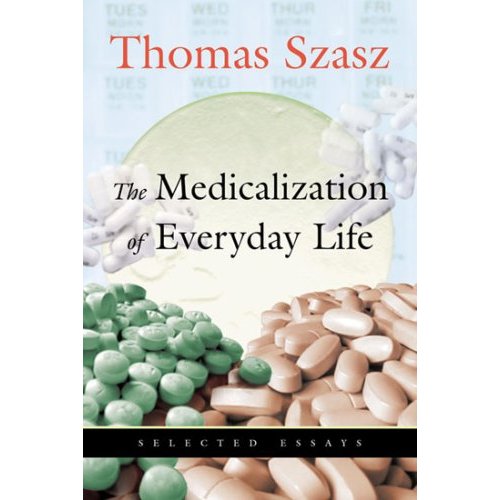![]() See also: History of Psychiatry homepage
See also: History of Psychiatry homepage
The Medicalization Of Everyday Life

|
|
Introduction:
The Medicalization Of Everyday Life,
Thomas Szasz, 2007 AD"Some people have always found it difficult to grow up and assume the responsibilities of adulthood. Formerly, the person who failed to meet this universal challenge—who remained unskilled, unmarried, unemployed, and unemployable—was cared for in the family or became a vagrant, leading a marginal existence. His relatives, if they were educated and had a large vocabulary, might have called him a "tatterdemalion." Now they call him "schizophrenic."" (The Medicalization Of Everyday Life, Thomas Szasz, 2007 AD, p 61)
"It is not my intention to discuss here what we mean when we use the word "disease." However, apropos of the ADA and its exclusion of kleptomania, I want to note that, as normal users of English, we do not attribute motives to diseases, and do not call motivated actions (bodily) "diseases." For example, we attribute no motive to a person for having leukemia; it would be foolish to say that a particular motive led to a person's having glaucoma; and it would be quite nonsensical to assert that an illness (say, diabetes) caused a person to become a senator." (The Medicalization Of Everyday Life, Thomas Szasz, 2007 AD, p 32)
By Steve Rudd: Contact the author for comments, input or corrections.
Send us your story about your experience with modern Psychiatry